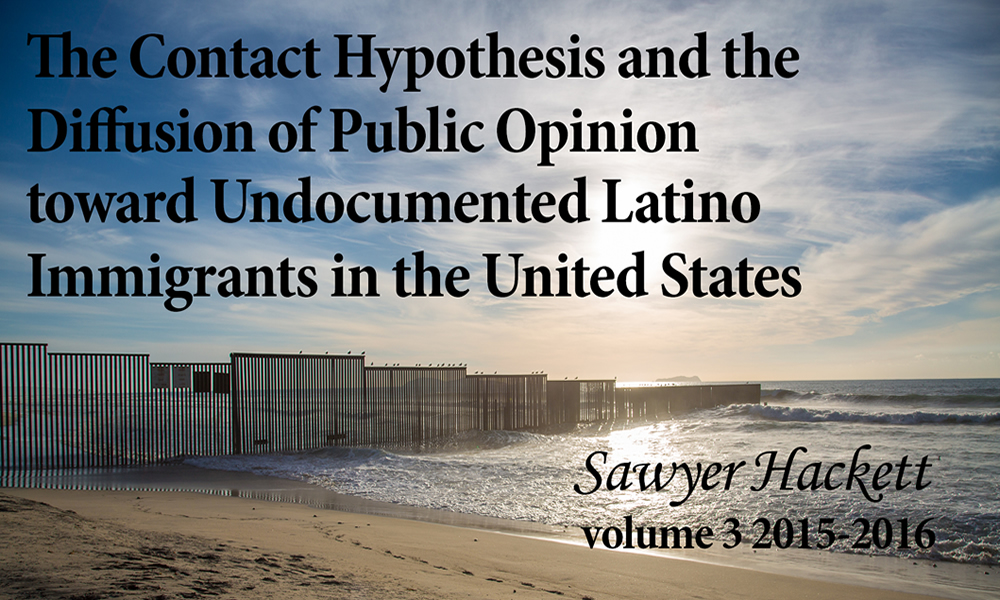Love the One You're With
Sawyer Hackett and the Contact Hypothesis
News
SUMMARY: Illegal immigration is a reliable political football every four years, or two years, and also in between. Sawyer Hackett engages the issue through the lens afforded by the contact hypothesis.
Undocumented immigration has long been a controversial topic in the United States. The big numbers—over 11.4 million undocumented immigrants in 2013—make the issue a reliable political football every four years, or two years, and also in between.
In “The Contact Hypothesis and the Diffusion of Public Opinion toward Undocumented Latino Immigrants in the United States,” Sawyer Hackett approaches the issue through the lens afforded by the “contact hypothesis,” which in bare terms suggests that we better appreciate members of other demographic groups when we spend time together under the right circumstances.
Hackett tests the contact hypothesis in his paper by focusing in on groups with different ethnic and legal classifications. Government surveys, datasets, and statistical abstracts enable four separate tests, starting with how residents in border and non-border states generally feel about their undocumented neighbors. Hackett then assesses the relative importance that different “in-group” citizens place on citizenship, border security, and a work period for undocumented immigrants.
Collecting and analyzing all this data paid off in the end. As Hackett observes in his conclusion, “the contact hypothesis may expose a societal force for positive sensibility. Problems related to isolationism, segregation, and racism may be mitigated by the interaction between an apprehensive in-group and a [growing] out-group.” And importantly, the contact hypothesis has political implications, as it offers possible explanations for why “citizens in certain areas in the U.S. feel a particular way about undocumented immigration” and why different sectors of the population prefer specific policies.
Hackett completed his research for "The Contact Hypothesis" in a class he took during his sophomore year at JMU. Almost four years later, he collaborated with the JMURJ Editorial Board to see the project through to publication. “It is great to have an outlet like JMURJ," he wrote recently, "Many students work so hard to put together great papers, and they just become a grade in a course. JMURJ allows students to cement that work and put it to use in the future.” Congratulations, Sawyer, and thanks for staying the course.
Read “The Contact Hypothesis and the Diffusion of Public Opinion toward Undocumented Latino Immigrants in the United States” in Volume 3 of JMURJ.
__
Sawyer Hackett (’14), from Sterling, Virginia, graduated with a degree in Political Science from JMU and currently serves as a political appointee in the Obama Administration at the U.S. Department of Housing and Urban Development. During his time at JMU, he was involved in the campaigns of Gov. Terry McAuliffe, Sen. Mark Warner, and was a staffer on the 2012 election of President Obama. Sawyer currently lives in D.C. and is active in the JMU Politicos group.
